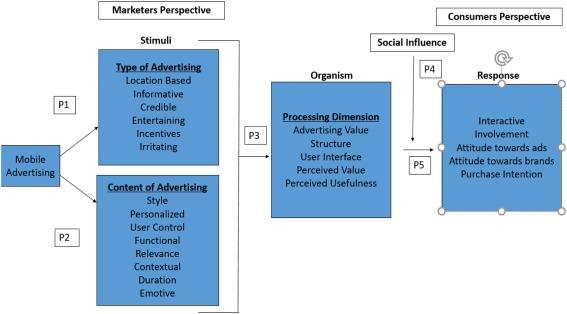How Blockchain is Revolutionizing Verifying Qualifications: Ensuring Authenticity and Trust
Blockchain technology has rapidly evolved from its origins in digital currencies to becoming a powerful tool in various industries. One of the most exciting and impactful areas it’s transforming is the verification of academic and professional qualifications. In a world where forged certificates and inflated CVs are more prevalent than ever, blockchain-based credential verification offers a clear, secure, and permanent solution. In this article, we’ll explore how blockchain is revolutionizing qualification verification, ensuring authenticity and trust for employers, institutions, and individuals.
Understanding the challenges in Verifying Qualifications
Conventional methods of verifying qualifications are often manual, time-consuming, and vulnerable to fraud. Weather you’re a university evaluating transfer students, an employer hiring talent, or a professional needing to prove your credentials, the existing verification processes can be fraught with challenges:
- Forgery: Fake degrees and certificates are easily created in today’s digital age.
- Lengthy Processes: Manual checks involving calls, emails, and document transfers can take days or even weeks.
- Lack of Standardization: Different systems and formats create inconsistencies and confusion.
- Data Privacy Issues: Sharing sensitive information via unsecured channels increases risks.
What is Blockchain and How Does it work in Credential Verification?
Blockchain is a decentralized, distributed digital ledger that records information in a way that makes it difficult or unachievable to alter, hack, or cheat. For the verification of qualifications, it works by storing digital credentials on a public or permissioned blockchain, creating a tamper-proof record of educational and professional achievements.
- Immutability: once information is entered into the blockchain, it cannot be changed.
- Openness: Credentials can easily be checked by authorized third parties.
- Decentralization: No central authority controls the data, reducing single points of failure.
- Instant Verification: Real-time access to credentials saves significant time and resources.
The Benefits of blockchain for Qualification Verification
Leveraging blockchain for verifying qualifications offers a bouquet of remarkable benefits that address many pain points of traditional systems:
- Enhanced Security: Credentials are cryptographically secure, reducing the risk of tampering and forgery.
- Instant Access and Verification: Employers and institutions can instantly verify qualifications from anywhere in the world.
- Cost Reduction: Automated processes eliminate the need for intermediaries, thereby decreasing labor and administrative costs.
- Data Privacy and Control: Individuals have control over who can view and verify their records.
- Global Standardization: blockchain can underpin universally accepted digital badges and certificates, making cross-border recognition easier.
Real-World applications: Blockchain-Based Qualification Verification in Action
Several leading institutions and companies have already embraced blockchain solutions to verify qualifications and ensure authenticity:
- MIT Digital diplomas: The Massachusetts Institute of Technology issues blockchain-based digital diplomas, enabling graduates to securely share proof of their achievements worldwide.
- Learning Machine: Associates with various universities to provide blockchain-secured educational records.
- APPII: A UK-based platform that lets users verify and store academic and professional credentials on the blockchain.
- Blockcerts: An open standard for creating and verifying blockchain-based certificates.
These pioneering projects demonstrate blockchain’s potential to boost trust in academic and employment markets – streamlining hiring, admissions, and compliance.
First-Hand Experience: How Blockchain Changed My Hiring Process
As an HR manager at a tech startup, I was constantly battling delays and doubts during candidate background checks.After partnering with a blockchain-based credential verification provider, the transformation was immediate:
- I received instant verification of candidate qualifications – eliminating weeks of back-and-forth with universities.
- Fraudulent applications dropped substantially as forged certificates were flagged or denied by the platform’s algorithms.
- Candidates appreciated the privacy and control over their digital records, resulting in a more transparent process and increased trust on both sides.
this firsthand experience proved to me that blockchain in credential verification isn’t just a buzzword – it’s a practical solution making a measurable impact on recruitment efficiency and trust.
Practical Tips: How to Implement Blockchain-Based Qualification Verification
Considering the switch to blockchain for your association or as an individual? Here are actionable steps to get started:
- Research Providers: Evaluate reputable platforms such as Blockcerts, Learning Machine, or regional providers specialized in blockchain credentialing.
- Integrate with Existing Systems: Choose solutions that can be seamlessly integrated with your HR, student records, or certification systems.
- Educate Your Team: Train staff and stakeholders on the benefits and usage of blockchain-based verification tools.
- Prioritize Privacy: Ensure the platform complies with data protection regulations and lets users control their private information.
- Pilot and Scale: Start with a pilot project and, upon accomplished results, expand to additional departments or processes.
By following these steps, you can future-proof your credential verification workflows and enjoy the benefits of authenticity and trust that blockchain offers.
Potential Challenges and the Future Outlook
While blockchain is revolutionizing the verification of qualifications, it’s critically importent to acknowledge potential challenges:
- Adoption Barriers: Large-scale implementation requires coordination among institutions, employers, and regulatory bodies.
- Technical Literacy: Stakeholders may need education and support to adapt to new blockchain systems.
- Interoperability: Efforts are ongoing to ensure different blockchain systems can “talk” to each other globally.
Though, with standards progressing and growing awareness of the advantages, the adoption curve is steepening. As blockchain technology matures, we can anticipate a world where credential fraud is virtually eliminated and trust in qualifications is universally assured.
Conclusion: Blockchain Sets a New Standard for Qualification Verification
blockchain is fundamentally transforming how we verify educational and professional qualifications.By offering unmatched security, transparency, and efficiency, this technology is solving long-standing challenges and building a foundation of trust for the future of work and learning.Institutions, employers, and individuals who embrace blockchain-based verification systems stand to benefit from reduced fraud, streamlined processes, and greater confidence in credentials.
Ready to be part of the revolution? Explore the potential of blockchain for qualification verification and join the global movement toward authenticity and trust.

